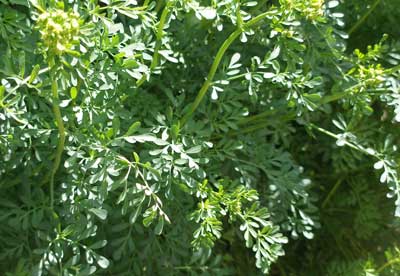Mustard oil. Siddharth Dasgupta provides fascinating information. The pungency of mustard oil is from a compound called allyl-iso-thio-cyanate. This is attractive to Bengalis but others may find it too pronounced. Unfortunately mustard oil also contains erucic acid, which is a low grade neurotoxin. It turns out that long term heavy use of mustard oil is injurious. All mustard oils imported to the US from India or Bangladesh) have to be labelled "For external use only". For many years Australia tried to grow a low erucic acid variant, but this was not successful.

Rue. A very bitter herb, best added to cooking and removed quite rapidly. The better part of its flavour is then imparted and the bitterness reduced.
The husks of the seeds of Plantago ovata, psyllium. They are used as an ingredient of natural laxatives. In India they are used in the long, cool drinks available in India. They absorb the flavours of the drink and take on a jelly-like consistency.
Sago. It is made from the viscous sap of a tall palm tree. It is collected in the same way as rubber, by making an incision in the trunk.
Dill. An herbaceous plant which grows practically all over India. It is about 1 meter (3 ft) in height, with wispy leaves bearing clusters of small yellow flowers and oval, pod-like fruits. The fruits are left to ripen on the plant until they have dried. The fragrant seeds are then extracted, threshed and dried. It has an aroma slightly reminiscent of caraway, warm, aromatic and tingly.